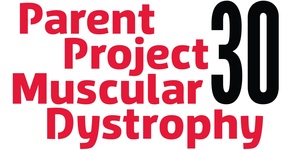Parent Project Muscular Dystrophy-led updates to community guidance seek to assist trial sponsors in the clinical development of safe and effective therapies for the treatment of Duchenne, Becker, and related dystrophinopathies over the entire spectrum of the disease.
WASHINGTON, Oct. 6, 2022 /PRNewswire/ -- Parent Project Muscular Dystrophy (PPMD), a nonprofit organization leading the fight to end Duchenne muscular dystrophy (Duchenne), announced the submission to the U.S. Food and Drug Administration (FDA) of a significantly revised version of the community draft guidance on Duchenne muscular dystrophy, Becker muscular dystrophy, and related dystrophinopathies. The initial community draft guidance was submitted by a consortium of stakeholders under the coordination of PPMD in July 2014. This revision is provided to reflect scientific progress, patient-focused drug development studies, published clinical trials, and related relevant information compiled over the 8 years subsequent to the last submission, and is now provided for consideration by the FDA.
"PPMD thanks the FDA for their receptive response to our original 2014 submission, in which the Duchenne and Becker community collaborated to develop and submit to the FDA the first-ever patient advocacy-initiated Duchenne Guidance for developing therapies. This effort was intended to help accelerate drug development. In 2018, the FDA followed by issuing its own Duchenne Guidance, as the drug development pipeline continued to expand," said PPMD's Founding President & CEO, Pat Furlong. "Since the original submission, a lot has changed. Our community has experienced regulatory successes with five drug approvals, as well as difficult disappointments with several study terminations. As the field has evolved, so has our understanding and learnings about what to do differently. For this reason, PPMD initiated an update to the 2014 Guidance, so that new knowledge and experience from clinical studies can be applied moving forward. We have also requested that the FDA officially open a new docket for this revised community guidance initiative to allow for broad public attention and commentary."
This current submission builds upon the previously submitted community guidance, again using some of FDA's guidance format practices, which was assembled by working groups including recognized clinical trial investigators, disease experts, patients, caregivers, industry scientists, and other interested stakeholders. The community guidance update process has taken over a year to compile, assess, and integrate extensive new material to capture contemporaneous scientific, clinical, and care developments to inform the revision content.
The new version includes updates to sections of the 2014 document as well as additional original sections covering cardiac, gene therapy, and informed consent sections for the FDA's consideration. The updates also build upon various ongoing exchanges with regulators and other experts over the past 8 years.
"Our intent is unchanged from the 2014 community guidance endeavor; that is to lay out a structure for companies developing therapies, so that they may clearly understand the disease, what is important to patients, and what is required by regulatory agencies to determine the safety and effectiveness of a therapy, as well as the patient-focused views of benefit expectations and risk tolerance of our community," said Ryan Fischer, PPMD's Chief Advocacy Officer. "We've made a great deal of progress since the first guidance and recognized the need to revisit the landmark document to ensure it reflects both scientific and procedural progress, including the new sections covering advancements in cardiology and gene therapy. This is expected to help drive innovation in Duchenne, Becker, and related dystrophinopathies as well as carve a path toward our ultimate goal of accessible therapies for all patients."
The process of updating the Community Guidance has involved over 100 stakeholders including patients, caregivers, clinicians, researchers, drug companies, genetic counselors, and regulatory experts. This unprecedented effort brought together the leading experts in Duchenne serving on working groups in the following areas:
- Benefit-Risk Preferences and Patient Experience
- Biomarkers
- Diagnosis
- Cardiac
- Gene Therapy
- Natural History, Trial Design, Outcome Measures
Two advisory boards were also involved in the update overseeing the process and commenting on each section of the Guidance; A Pharmaceutical Advisory Board comprised of 21 companies currently developing therapies for Duchenne and Becker, and a Community Advisory Board that included 20 Duchenne partner organizations.
Duchenne is a genetic disorder that slowly robs people of their muscle strength. Parent Project Muscular Dystrophy (PPMD) fights every single battle necessary to end Duchenne.
We demand optimal care standards and ensure every family has access to expert healthcare providers, cutting edge treatments, and a community of support. We invest deeply in treatments for this generation of Duchenne patients and in research that will benefit future generations. Our advocacy efforts have secured hundreds of millions of dollars in funding and won five FDA approvals.
Everything we do—and everything we have done since our founding in 1994—helps those with Duchenne live longer, stronger lives. We will not rest until we end Duchenne for every single person affected by the disease. Join our fight against Duchenne at EndDuchenne.org. Follow PPMD on Facebook, Twitter, Instagram, and YouTube.
SOURCE Parent Project Muscular Dystrophy (PPMD)

WANT YOUR COMPANY'S NEWS FEATURED ON PRNEWSWIRE.COM?
Newsrooms &
Influencers
Digital Media
Outlets
Journalists
Opted In






Share this article